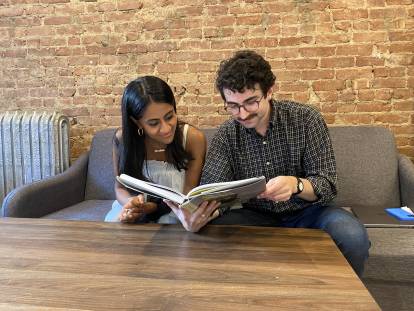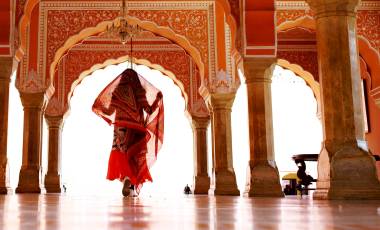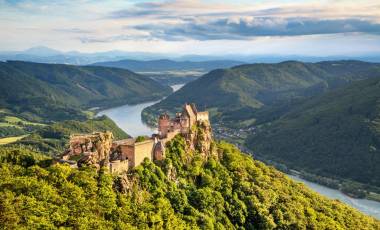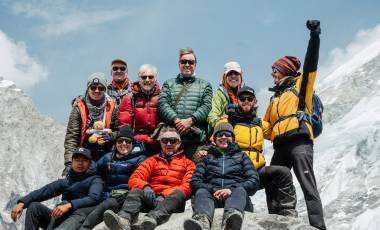Read time – 4 minutes
We are thrilled to announce that 4 incredible explorers have been chosen as the recipients of The Exodus Exploration Without Boundaries Grants. The objective of these grants, in partnership with The Explorers Club, is to encourage exploration without limitations. The research projects of these scholars will be instrumental in the advancement of the social and natural world through cultural, scientific, and conservation fieldwork. This grant was made on the belief that explorers are extraordinary individuals who set themselves apart in the pursuit of knowledge and that these individuals can come from all walks of life. These 4 champions exude just that.
Exodus Exploration Without Boundaries Grant 2022 Winners

Krithika Varagur and Tyler Richard – India: If These Walls Could Talk: Documenting the Chola Dynasty’s Inscriptional Past
Krithika is an award-winning American journalist, author, and essayist. Tyler is a scholar of Tamil and Sanskrit literature at Harvard University and the University of Texas at Austin. Their project traverses the disciplines of archaeology, history, and epigraphy (the study and interpretation of ancient inscriptions).
They plan to travel to India, where they have several on-the-ground research partners, to survey the Gangaikonda Cholapuram temple complex. There they will photograph, transcribe, and translate the copious medieval Tamil inscriptions from the Chola Dynasty, which ruled much of South India one thousand years ago. Upon returning home, they plan to create an open-access database of temple inscriptions translated into both English and Modern Tamil.
Krithika and Tyler’s project aims to lay the groundwork for a larger-scale effort to preserve, digitize, and translate the invaluable Chola history contained in over 1,000 stone temples scattered across the Tamil-speaking world, for the benefit of both scholars and the general public.

Bhavita Bhatia – Cowboys of the Lost Horizon – A Documentation & Conservation Project for the Himalayan Horses
Bhavita is a storyteller, explorer, ecofeminist, and horse conservationist, with over a decade of experience around the pastoral communities of the trans-Himalayan region in India, Bhutan, and Nepal. Her work has been featured in National Geographic, Explorer’s Club, and the New Yorker.
She recently partnered with the National Geographic Society on a 5000-kilometer foot traverse across northern India, walking back toward the world’s most isolated nomadic communities – off the edge of Mt. Kailash – home to some of the most sacred ranges of the Himalayas.
She is now based out of Kathmandu, building a grassroots project to study and support the lives of horse herders and yak nomads, particularly the fast-disappearing ponies across remote highlands of the Himalayas.
She is building a multimedia and conservation project to bring attention and support to the threatened horses in remote areas of the Himalayas, and to support the lives of the horse traders on the highest passes on earth.

Felipe Proano – Peru: Canals of Rurec
Felipe has been one of Ecuador’s most motivated climbers since 2003. He has been exploring and locating new climbing routes such as the columns of Tangánand the Towers of Simiatug.
His project, Canals of Rurec, combines archaeology and advanced mountain sports in order to identify, count, map, and understand the purpose of the ruins located in Peru’s Valley of Rurec. These ruins have been spotted by climbers in the area, though as of yet, nobody has conducted proper field research.
Felipe will produce a short film including content from his exploration of the area in 2018 through his research in 2022. He will be using tools such as aerial technology, satellite imagery, and modern climbing techniques. Felipe aims to investigate these structures to better understand their purpose and share his findings.

Yvette Gonzalez – Germany: Sky Indicators x Climate: A Noctilucent Cloud Observation Mobile App Toward Climate Monitoring
Yvette is an atmospheric and bioastronautics researcher, spacesuit technician, and human resiliency expert.
She has over 22 years of humanitarian, disaster response, and international development experience rebuilding communities in an active war, conflict, natural disasters, and epidemiological outbreaks.
Yvette plans to travel to Germany to collect high-quality images and videos of noctilucent clouds from one of the most optimal locations in Europe. These clouds have been appearing more often and further south, due to an increase in greenhouse gas emissions, particularly methane.
She will design a mobile, citizen-science application to document and track noctilucent clouds around the world. This project’s intention is to produce valuable findings regarding these clouds and the potential to monitor and predict climate changes in the future.
Stay up to date on these explorers and their expeditions here.







